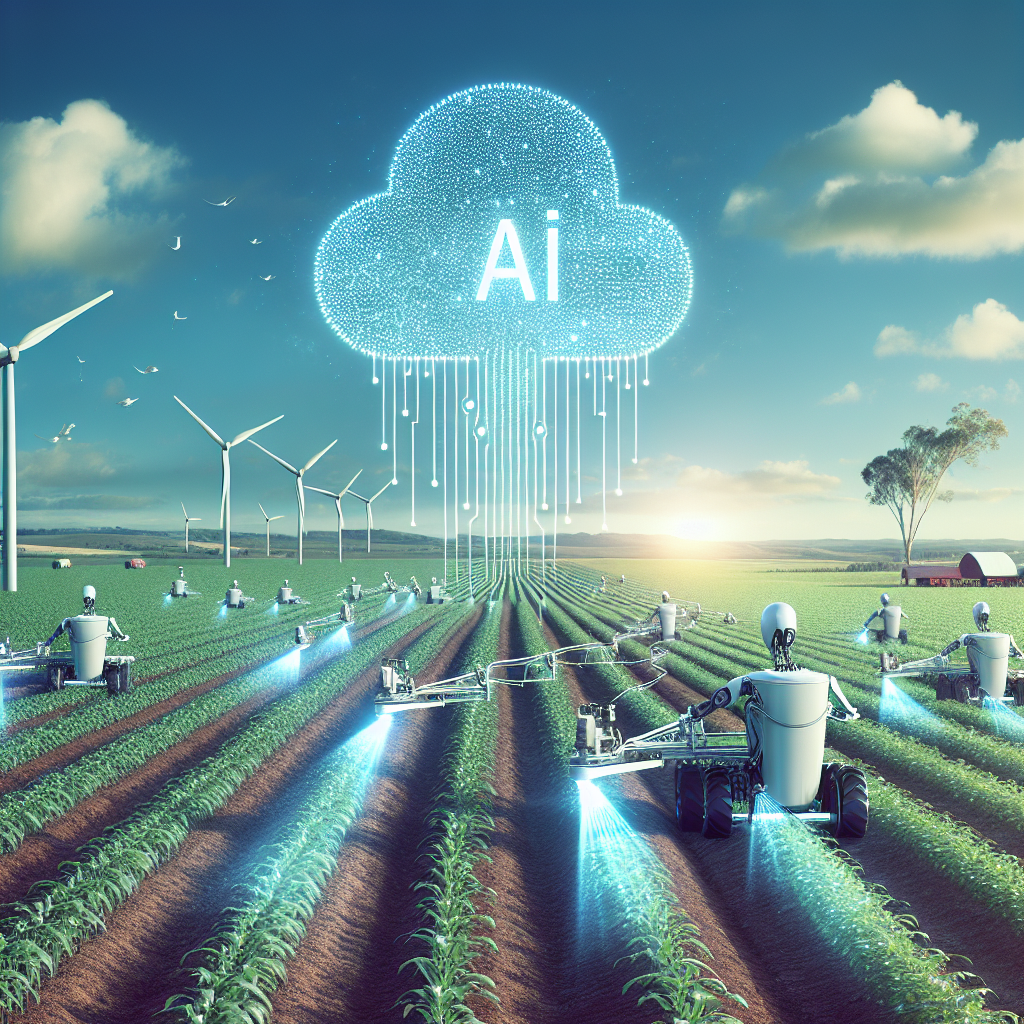The use of artificial intelligence (AI) software in agriculture is revolutionizing the way farmers manage their crops and livestock. AI technology is being used to analyze data, make predictions, and automate tasks, leading to increased efficiency, productivity, and sustainability in the agricultural industry. In this article, we will explore the different applications of AI software in agriculture and how it is benefiting farmers around the world.
One of the primary ways AI software is being used in agriculture is through precision farming. Precision farming involves using data and technology to optimize crop yields and reduce input costs. AI algorithms can analyze satellite imagery, weather data, soil samples, and other information to provide farmers with insights on how to best manage their fields. For example, AI software can help farmers identify areas of a field that require more or less irrigation, fertilizer, or pesticide, leading to more targeted and efficient use of resources.
Another application of AI software in agriculture is in crop monitoring and disease detection. AI algorithms can analyze images of crops taken by drones or sensors to detect signs of disease, pests, or nutrient deficiencies. By identifying these issues early on, farmers can take corrective action to prevent crop losses and increase yields. AI software can also be used to predict crop yields, allowing farmers to better plan for harvest and distribution.
Livestock management is another area where AI software is making a positive impact. AI algorithms can analyze data from sensors attached to animals to monitor their health, behavior, and productivity. For example, AI software can detect signs of illness in livestock and alert farmers to take action. AI can also be used to optimize feeding schedules, breeding programs, and overall herd management, leading to healthier and more productive livestock.
In addition to precision farming, crop monitoring, and livestock management, AI software is also being used in other areas of agriculture, such as supply chain management, market analysis, and agricultural robotics. AI technology is helping farmers make better decisions, automate tasks, and improve overall efficiency in their operations.
Overall, the use of AI software in agriculture is transforming the industry and helping farmers overcome the challenges they face, such as climate change, resource scarcity, and labor shortages. By harnessing the power of AI technology, farmers can increase their productivity, reduce their environmental impact, and ensure a more sustainable future for agriculture.
FAQs:
Q: How does AI software benefit farmers?
A: AI software helps farmers make better decisions, automate tasks, and increase productivity in their operations. By analyzing data and providing insights, AI technology can optimize crop yields, reduce input costs, and improve overall efficiency in agriculture.
Q: Is AI software expensive to implement in agriculture?
A: While the initial cost of implementing AI software in agriculture may be high, the long-term benefits outweigh the investment. AI technology can help farmers save money on inputs, increase yields, and improve sustainability in their operations.
Q: Can small-scale farmers benefit from using AI software?
A: Yes, small-scale farmers can also benefit from using AI software in agriculture. There are many affordable and user-friendly AI solutions available that cater to the needs of small-scale farmers. By utilizing AI technology, small-scale farmers can increase their productivity and profitability.
Q: What are the challenges of using AI software in agriculture?
A: Some of the challenges of using AI software in agriculture include data privacy concerns, limited access to technology in rural areas, and the need for technical expertise to implement and maintain AI systems. However, as AI technology continues to evolve, these challenges are being addressed to make AI more accessible and beneficial to farmers.
In conclusion, the use of AI software in agriculture is transforming the industry and helping farmers overcome challenges to increase efficiency, productivity, and sustainability. As AI technology continues to evolve, we can expect to see even more innovative applications and benefits for farmers around the world.

